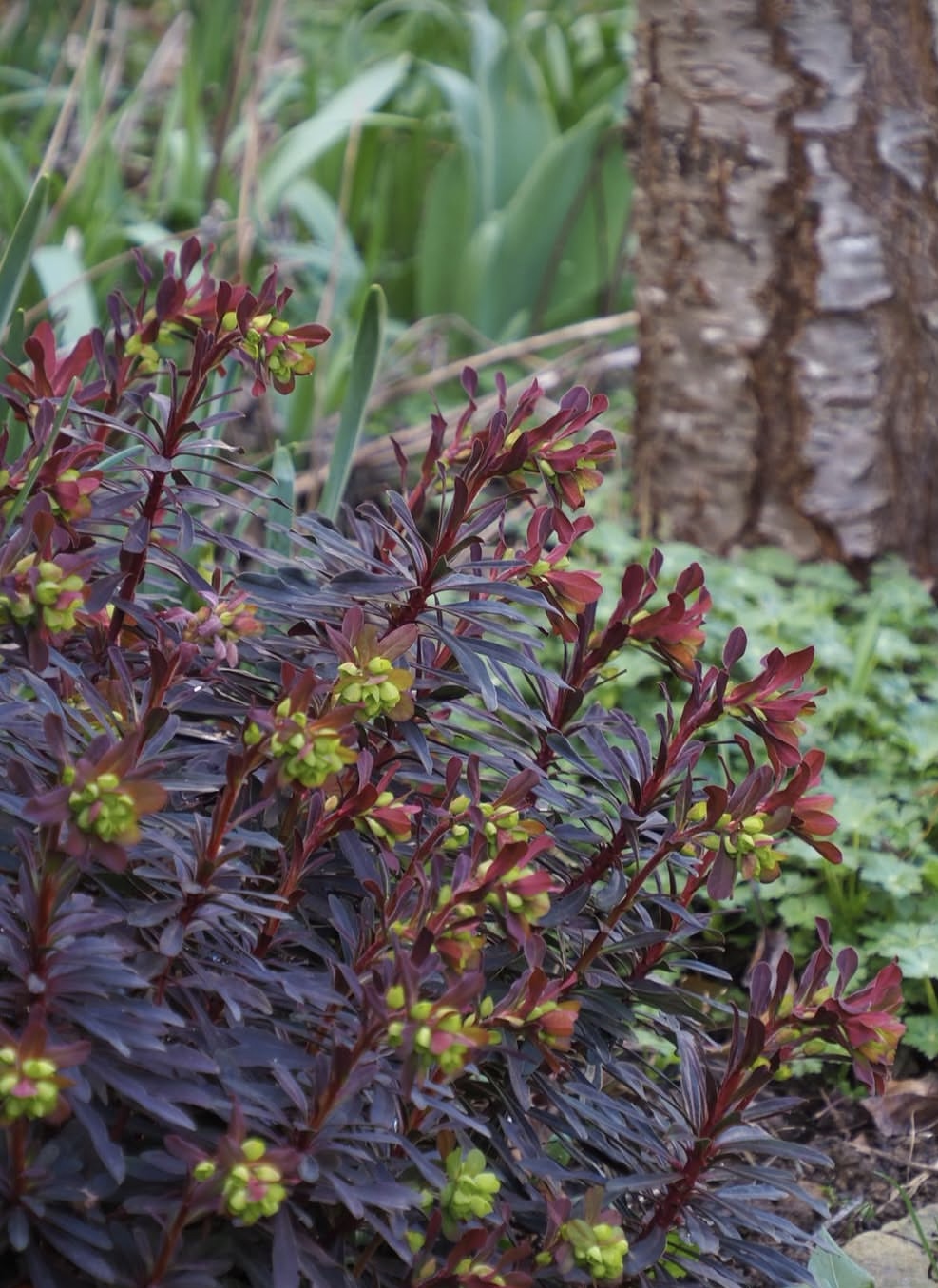Isle of Wight deliveries & Collections only

Euphorbia amygdaloides var. purpurea
£7.00
Out of stock
Euphorbia purpurea
A striking evergreen perennial with rich winter colour.
Euphorbia purpurea is a dramatic and reliable plant, treasured for its deep purple-tinted foliage that holds its colour beautifully through winter. Clusters of lime-green flowers appear in spring and summer, contrasting vividly with the dark leaves and attracting pollinators such as bees and hoverflies. Its bold foliage gives year-round structure, especially valuable in the colder months when other perennials die back.
This euphorbia thrives in well-drained soil and full sun to partial shade, and once established it tolerates dry conditions with ease. Its compact yet bushy habit makes it excellent for borders, gravel gardens, or containers where its winter foliage can be fully appreciated. Like all euphorbias, it exudes a milky sap when cut, so gloves should be worn when handling.
Specifications
Type: Evergreen perennial
Position: Full sun to partial shade
Soil: Well-drained, moderately fertile
Flowers: Spring to early summer, lime-green bracts
Foliage: Deep purple-green, evergreen, winter interest
Height: 50–60 cm
Spread: 45 cm
Wildlife: Loved by bees and hoverflies
Care: Cut back flower stems after blooming, wear gloves when pruning
🌿 Note for Isle of Wight planting
Euphorbia purpurea is well-suited to coastal conditions, holding its structure and colour through damp and windy winters. On the Island, it keeps its foliage looking smart year-round, providing structure in mixed borders when other plants fade.
🌿 Ideal Companion Plants from The Green Standard Range
Festuca glauca ‘Elijah Blue’ – blue-grey grasses that complement the purple foliage
Sedum ‘Iceberg’ – bright white flowers and succulent foliage for summer contrast
Cephalaria gigantea – tall, airy yellow blooms to add height behind its structure
Salvia ‘Blue Note’ – deep blue flowers to harmonise with euphorbia’s bracts
🌟 The Green Standard Tip
Plant Euphorbia purpurea in groups of three to create bold winter interest in the border, then let pollinator-friendly companions weave through for a long season of colour.
